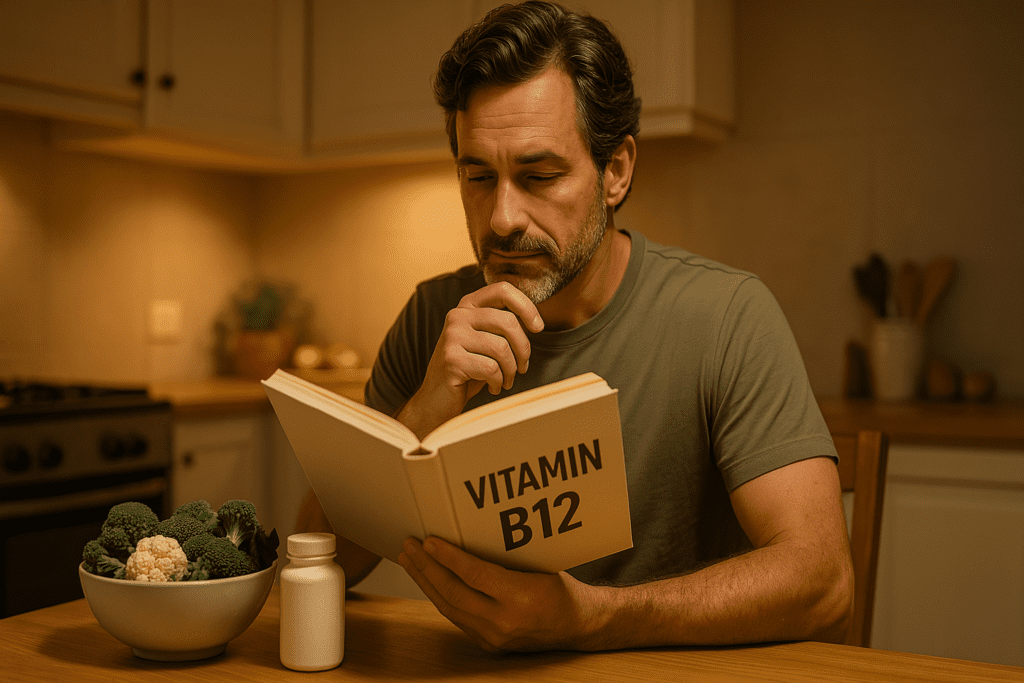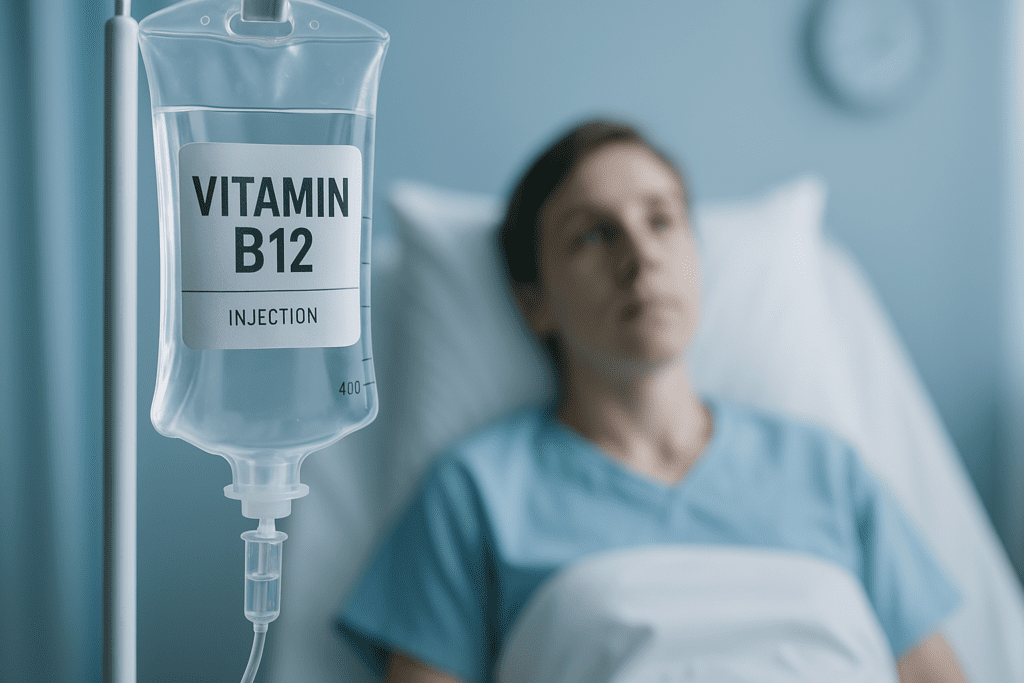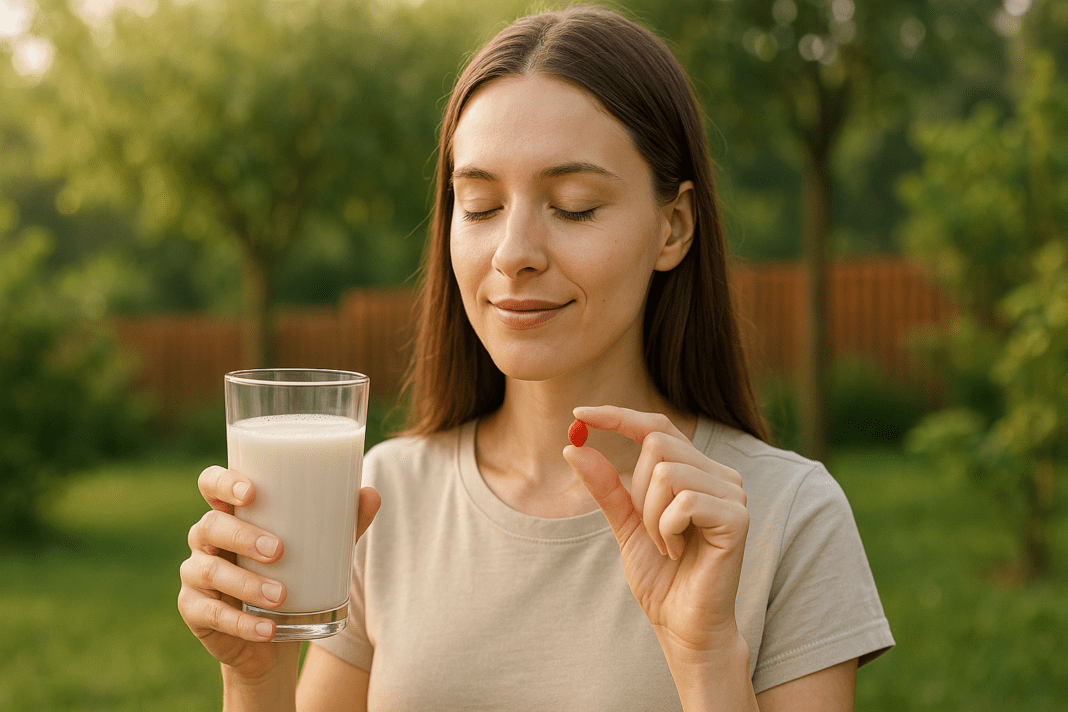For those following a plant-based lifestyle, questions around vitamin B12 are not only common but critically important. Unlike many other essential nutrients, vitamin B12 is not naturally abundant in plant-based foods, and yet it plays a fundamental role in maintaining neurological health, producing red blood cells, and supporting DNA synthesis. The concern surrounding vitamin B12 in veg diets is not unfounded. Studies consistently show that without careful planning, both vegans and vegetarians are at risk of deficiency. In this science-backed guide, we’ll explore what B12 is, why it matters, how vegans get B12, and what every plant-based eater should know to protect their health.
You may also like: Best Plant-Based Carbs for Energy and Health: What Science Says About Vegetarian Carbohydrates
Understanding Vitamin B12: A Crucial Nutrient for Health
Vitamin B12, or cobalamin, is a water-soluble vitamin involved in many of the body’s essential processes. It is necessary for the formation of red blood cells, proper nerve function, and the production of DNA. A deficiency in B12 can lead to fatigue, anemia, neurological problems, and long-term cognitive decline. What makes vitamin B12 particularly unique is its sourcing—it is produced by certain bacteria and archaea, not by plants or animals themselves. Animals accumulate B12 in their tissues by consuming B12-producing bacteria through food, soil, or gut flora, which is why animal products are traditionally considered the primary sources.
Because plant foods do not naturally contain significant amounts of B12, those following a vegan or vegetarian diet must be especially mindful of how they obtain this critical nutrient. This leads to a crucial question: how do vegans get B12 if they’re not eating meat or dairy? The answer lies in modern food science, fortified options, and supplementation.

The Science Behind B12 Deficiency in Plant-Based Diets
Despite the many health benefits associated with a plant-based lifestyle—such as reduced risk of heart disease, lower blood pressure, and improved weight management—vitamin B12 remains one of the few nutritional blind spots. Research shows that vitamin B12 deficiency in vegan diets is a significant concern, especially over the long term. Symptoms may develop slowly and include tingling in the hands or feet, difficulty concentrating, mood disturbances, and even irreversible nerve damage if left untreated.
Vegetarians and vitamin B12 status also deserve close attention. While some vegetarians may consume eggs or dairy—both of which contain B12—the amounts are often insufficient to meet daily needs without consistent and conscious dietary planning. As a result, vitamin B12 deficiency in vegetarian populations, particularly those with low intake of dairy or eggs, is increasingly documented in clinical studies.
One of the reasons B12 deficiency is often overlooked is that symptoms can be subtle at first and easily mistaken for other health issues. Fatigue, for instance, might be attributed to a busy schedule or poor sleep, rather than an underlying nutrient deficiency. This highlights the importance of awareness, regular blood testing, and proactive nutritional strategies for those on plant-based diets.
Common Misconceptions About Vitamin B12 and Plant Foods
A frequent question asked by those new to veganism is: can you get B12 from plants? While the internet often suggests that fermented foods, seaweed, or mushrooms might provide adequate vitamin B12 for vegans, the reality is more complicated. Most of these foods contain B12 analogues—compounds that resemble B12 in structure but do not provide the same biological activity in the human body.
For example, spirulina and other forms of algae have been promoted as non meat sources of B12, but they primarily contain pseudovitamin B12. These analogues can even interfere with the absorption of true B12, making them a risky strategy for meeting your nutritional needs. Similarly, while certain types of mushrooms grown in B12-rich environments may offer trace amounts of the vitamin, these amounts are generally too low and inconsistent to rely on as a primary source.
This confusion underscores the importance of science-based guidance when navigating vegan B12 sources. Trusting folklore or anecdotal evidence over clinical data can lead to nutritional imbalances with long-term consequences.
The Role of Fortified Foods in a Plant-Based Diet
For vegans and vegetarians alike, fortified foods represent one of the most accessible and effective ways to obtain vitamin B12. Many plant-based milk alternatives—such as almond, soy, or oat milk—are fortified with B12, as are breakfast cereals, nutritional yeast, and some meat substitutes. These fortified products provide a practical solution to the question of how do you get B12 in a vegan diet.
Fortified nutritional yeast, in particular, is a favorite among plant-based eaters. It’s a versatile ingredient with a cheesy, savory flavor that can be added to soups, salads, sauces, and more. A single tablespoon can often provide the full daily requirement for B12, depending on the brand. Regular consumption of these foods helps ensure that vegetarians and vegans receive consistent and adequate amounts of B12 without the need to rely solely on supplements.
Still, it’s crucial to read labels carefully. Not all plant-based foods are fortified, and the amount of B12 can vary widely from one product to another. Moreover, those with limited access to fortified foods—due to geographic location, budget constraints, or food preferences—may need to rely more heavily on supplementation.
Vitamin B12 Supplements: Safe, Effective, and Essential
When considering how vegans get B12 on a consistent basis, supplementation often emerges as the most reliable solution. Vegan diet B12 supplements are widely available and come in various forms, including tablets, sublingual lozenges, sprays, and even B12-infused toothpaste. These supplements are made using bacterial fermentation, making them entirely suitable for vegan and vegetarian consumption.
For individuals with a confirmed deficiency or absorption issues, higher doses and possibly injectable forms may be recommended by healthcare professionals. However, for most people on a plant-based diet, a standard oral supplement is both sufficient and effective. The best B12 supplement for vegans often depends on personal preference, absorption needs, and healthcare guidance.
In general, it is recommended that vegans take either a daily supplement containing at least 25–100 micrograms of cyanocobalamin or a weekly dose of 1,000–2,500 micrograms. The body absorbs only a fraction of these amounts, but regular intake helps maintain healthy B12 stores over time. Questions like how much B12 should a vegan take are best answered with the support of a dietitian or physician, especially for those with unique medical conditions or dietary patterns.
Special Considerations for Vegetarians and Vitamin B12
While some vegetarians include eggs and dairy in their diets, relying on these foods alone may not always provide adequate B12. This is especially true for individuals who consume these foods infrequently or in small quantities. Vitamin B12 in vegetarian diets can be unpredictable, leading to insufficient intake over time.
Adding to the challenge is that certain lifestyle factors, such as age, digestive disorders, or medications like metformin and proton pump inhibitors, can interfere with B12 absorption. Thus, even lacto-ovo vegetarians who consume some animal products may be at risk. The issue of b12 deficiency in vegetarian populations is further complicated by the fact that symptoms often take years to manifest, by which point neurological damage may have occurred.
To address this, experts recommend that vegetarians follow similar precautions to those of vegans by incorporating fortified foods and/or supplements into their routine. Dietary sources of B12 for vegetarians should be chosen with care, ensuring that labels are read closely and that consistent intake is maintained. For those seeking a comprehensive approach, periodic blood testing can help assess B12 status and adjust strategies accordingly.
Health Risks of Untreated B12 Deficiency
The consequences of B12 deficiency in vegans and vegetarians extend beyond short-term symptoms. Left untreated, a deficiency can cause irreversible damage to the nervous system, including memory loss, impaired coordination, and numbness or tingling in the extremities. In severe cases, deficiency may even result in megaloblastic anemia, a condition marked by enlarged and inefficient red blood cells.
Long-term studies have shown a higher prevalence of b12 deficiency vegan and vegetarian individuals compared to those who consume meat. While not everyone on a plant-based diet will develop a deficiency, the risk is significantly elevated without adequate intake through fortified foods or supplements. Additionally, pregnant and breastfeeding individuals on vegan or vegetarian diets must be especially vigilant, as low B12 levels can lead to developmental issues in infants.
Healthcare providers recommend regular monitoring of B12 levels through blood tests, especially if symptoms are present or if the diet is low in fortified foods. Early detection allows for prompt intervention, which can reverse many symptoms and prevent long-term complications.
Evaluating the Best B12 Options for Plant-Based Lifestyles
Navigating the landscape of B12 options can be overwhelming, especially with the range of products and conflicting advice available. However, science consistently supports a few key strategies. The best B12 for vegans is often a high-quality supplement paired with fortified foods, providing both immediate and long-term coverage.
Among the most effective supplement forms is cyanocobalamin, a stable and reliable version of vitamin B12 that is well-absorbed and inexpensive. While some individuals may opt for methylcobalamin or hydroxocobalamin for specific health reasons, these forms may not always offer clear advantages for the general population. Determining the best B12 supplement for vegans often comes down to individual needs, preferences, and accessibility.
To further support optimal health, it’s also important to consider broader vitamin B complex intake. B vitamins in vegetarian diets, including B6, B1 (thiamine), B2 (riboflavin), and folate, work synergistically with B12 in energy metabolism, brain function, and red blood cell production. While B12 may be the most challenging to obtain, ensuring adequate intake of the entire B vitamin group helps create a nutritionally sound foundation.

Frequently Asked Questions: Vitamin B12 for Vegans and Vegetarians
What makes vitamin B12 particularly critical in long-term plant-based diets?
Vitamin B12 plays a non-negotiable role in the maintenance of neurological function and the formation of healthy red blood cells, but its importance becomes even more pronounced over time in plant-based diets. Because vitamin B12 in veg foods is limited or absent unless fortified, long-term vegans and vegetarians may not experience symptoms for years until their stored levels are depleted. This delay can give a false sense of security, making regular intake even more important. The long-term consequences of deficiency—ranging from irreversible nerve damage to cognitive decline—are preventable with proactive nutritional strategies. Understanding how do vegans get B12 over the long haul is essential to sustaining a healthy lifestyle without hidden risks.
Are there any innovative or emerging vegan B12 sources on the horizon?
Yes, food science is evolving to meet the demands of plant-based nutrition. Researchers are exploring biofortification techniques—such as enriching lentils or tempeh with vitamin B12 through fermentation with B12-producing bacteria—to provide more natural-feeling, non meat sources of B12. Although these are still in the experimental stages, they represent a promising shift in how vitamin B12 for vegans might be more seamlessly integrated into whole-food plant-based meals in the future. This could help address common challenges in sourcing B12 vegan options without relying exclusively on supplements or highly processed fortified foods. These developments also reinforce the growing recognition of B12 for vegetarians as a nutritional necessity, not an afterthought.
Can lifestyle factors influence B12 absorption even if intake is adequate?
Absolutely. Factors such as age, digestive health, and medication use can significantly impact the body’s ability to absorb vitamin B12. Individuals with low stomach acid—common in older adults—may struggle to extract B12 from both food and supplements. Similarly, medications like proton pump inhibitors and metformin can interfere with absorption, even in those who follow a well-planned vegetarian diet B12 regimen. This means that simply consuming B12 vegetarian options isn’t enough; absorption must also be considered. Regular blood work and consultation with a healthcare professional can help detect and resolve absorption-related issues early.
How do vegan athletes or high-performing individuals manage their B12 needs?
Athletes on a plant-based diet often have elevated nutritional requirements due to increased metabolic demands. While B12 isn’t consumed in greater amounts during exercise, its role in energy metabolism and red blood cell production means that even a borderline deficiency can impair performance. For this reason, vegan athletes typically opt for consistent use of a vegan diet B12 supplement to eliminate any risk of deficiency-induced fatigue. Many also use nutrient tracking tools to ensure they’re getting not just vitamin B12 for vegans, but also other b vitamins vegan diet regimens may need more of, such as B6 and folate. Preventive care is a cornerstone of peak athletic performance, and B12 is a foundational part of that plan.
Is there a difference between B12 deficiency symptoms in vegetarians and vegans?
While the symptoms themselves are similar—including fatigue, numbness, cognitive impairment, and anemia—vegetarians may experience them at a slower rate due to intermittent intake from eggs or dairy. However, these animal-based sources often provide inconsistent levels of B12, especially in diets that are predominantly plant-based. Therefore, b12 deficiency vegetarian individuals may be less aware of their risk until symptoms are more advanced. It’s crucial that vegetarians and vitamin B12 awareness go hand in hand, especially for those who identify as “mostly plant-based.” Consistency and adequate intake matter more than the diet label alone.
Can vitamin B12 supplements be tailored for different life stages?
Yes, there are life-stage-specific B12 formulations designed to meet the needs of children, pregnant individuals, older adults, and people with malabsorption issues. For example, pregnant vegans may require higher doses of b12 for vegetarians to support fetal development, especially since deficiency during pregnancy can lead to neural tube defects and developmental delays. Pediatricians may recommend B12-fortified multivitamins for vegan children to ensure early cognitive and neurological support. Older adults, who often experience reduced absorption due to lower intrinsic factor production, may benefit from sublingual or high-dose supplements. Understanding how much B12 should a vegan take at each life stage ensures personalized and effective nutritional support.
Are there any risks of over-supplementing with vitamin B12?
Vitamin B12 is water-soluble, meaning excess amounts are typically excreted in urine, and toxicity is extremely rare. However, excessively high doses—especially when not medically necessary—can lead to mild side effects like acne or upset stomach in some people. More importantly, high B12 levels in blood tests can mask other underlying health issues, such as liver dysfunction or certain cancers, which is why interpreting lab results in context is crucial. Even when selecting the best b12 supplement for vegans, more is not always better; the goal is adequacy, not excess. Staying within evidence-based dosing guidelines supports optimal health while avoiding unnecessary complications.
How do cultural or regional diets affect B12 availability for vegetarians and vegans?
Regional differences in food availability and traditional practices can significantly influence access to dietary sources of B12 for vegetarians. In some countries, fortified foods are rare or not mandatory, making it harder to obtain reliable b12 vegetarian nutrition through everyday meals. Cultural norms that favor raw or minimally processed foods may also limit exposure to fortified products, which are often key to b12 vegan intake. Additionally, populations that traditionally consume fermented plant foods may mistakenly believe they provide adequate B12, despite evidence to the contrary. Tailoring B12 education and resources to regional diets can help reduce the prevalence of vitamin b12 deficiency vegetarian and vegan communities face globally.
Can you get B12 from plants through organic farming or soil intake?
Some proponents of organic or biodynamic farming claim that vegetables grown in B12-rich soil may offer trace amounts of vitamin B12 in veg diets, but scientific validation is lacking. While it is true that certain bacteria in the soil produce B12, modern agricultural practices, including thorough washing and sanitization, remove nearly all such residues. Furthermore, consuming unwashed vegetables for B12 poses serious food safety risks. Until reliable, bioavailable B12 from plant cultivation becomes scientifically proven and commercially available, plant-based eaters should not depend on soil exposure. The better question to ask isn’t just “can you get B12 from plants,” but whether that B12 is in a usable, bioactive form.
What strategies help ensure sustainable, long-term B12 adequacy in a plant-based lifestyle?
Long-term success with plant-based nutrition hinges on habit formation and routine. For many, this means incorporating fortified foods as daily staples and setting calendar reminders for weekly or biweekly supplements. Mobile apps that track nutrient intake can also provide real-time feedback on whether b vitamins vegetarian diet goals are being met. Building a healthcare support system that includes a dietitian familiar with vegan B12 sources and vegetarian sources of B12 adds an additional layer of protection. Ultimately, the answer to how can vegans get vitamin B12 consistently lies in combining education with practical systems that fit seamlessly into everyday life.

Final Thoughts: Protecting Your Health with Informed B12 Choices
For anyone following a plant-based lifestyle, understanding how to get vitamin B12 is essential for long-term health and wellness. Whether you’re a lifelong vegan, a new vegetarian, or simply exploring more plant-based meals, the importance of B12 cannot be overstated. From fortified foods and supplementation to regular health checkups, taking proactive steps ensures that dietary choices align with your body’s nutritional needs.
The question of how can vegans get vitamin B12 is not just a theoretical one—it has real implications for energy, brain health, and overall well-being. The science is clear: while vitamin B12 is not found naturally in plant foods, it is entirely possible to meet your needs with careful planning and evidence-based strategies. Whether you choose fortified nutritional yeast, a daily supplement, or both, consistency is key.
Ultimately, vitamin B12 for vegans and vegetarians represents a success story of modern nutritional science. With the right information and tools, plant-based eaters can thrive without compromise. By prioritizing evidence over anecdotes and integrating non meat sources of B12 into your daily life, you not only prevent deficiency but support a vibrant, sustainable way of living.
So the next time you wonder how do you get B12 as a vegan, remember this: with awareness, action, and the right resources, your plant-based path can be as nutritionally complete as it is compassionate.
Further Reading:
Vegetarian and vegan sources of B-12
The importance of vitamin B12 for individuals choosing plant-based diets
plant-based nutrition guide, vegan nutrient deficiencies, how to avoid anemia on a vegan diet, brain health for vegans, vegan wellness tips, vegetarian nutrition strategies, plant-based supplements, essential vitamins for vegans, fortified vegan foods, nutrient tracking for vegans, vegan health optimization, plant-based lifestyle advice, managing vegan fatigue, holistic vegan health, dietitian tips for vegans, vegan micronutrient guide, vegetarian meal planning, vegan brain support, vegan-friendly multivitamins, healthy vegan habits
Disclaimer
The information contained in this article is provided for general informational purposes only and is not intended to serve as medical, legal, or professional advice. While NewsHealthWatch strives to present accurate, up-to-date, and reliable content, no warranty or guarantee, expressed or implied, is made regarding the completeness, accuracy, or adequacy of the information provided. Readers are strongly advised to seek the guidance of a qualified healthcare provider or other relevant professionals before acting on any information contained in this article. NewsHealthWatch, its authors, editors, and contributors expressly disclaim any liability for any damages, losses, or consequences arising directly or indirectly from the use, interpretation, or reliance on any information presented herein. The views and opinions expressed in this article are those of the author(s) and do not necessarily reflect the official policies or positions of NewsHealthWatch.

